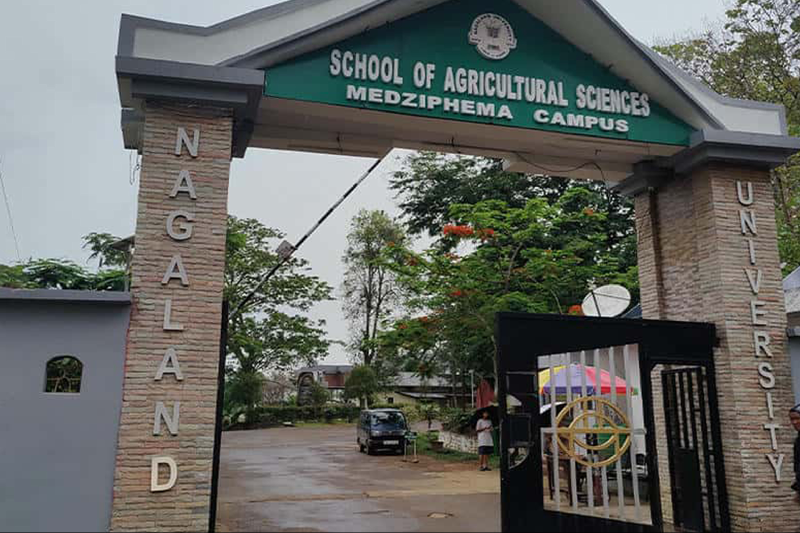
Nagaland University Launches MA in Rural Development & Management to Empower Regional Growth
Nagaland University has introduced a new two-year MA programme in Rural Development and Management under the Department of Rural Development and Planning. The programme aims to prepare future professionals to meet the specific developmental needs of rural Nagaland and the broader North Eastern Region. The move aligns with the university’s commitment to building regional capacity through focused academic interventions that blend theoretical knowledge with practical field exposure.
With over 70% of Nagaland’s population residing in rural areas, this programme has been carefully designed to contribute to planned rural transformation. By equipping students with the tools needed for effective policy implementation and project execution, the university hopes to address the region's long-standing socio-economic challenges.
Focus Areas: An Interdisciplinary, Practice-Oriented Curriculum
The curriculum of the new MA programme covers critical thematic areas including:
- Rural economy and livelihoods
- Governance structures and local institutions
- Natural resource management
- Social development and rural dynamics
- Planning, monitoring, and evaluation of development schemes
What sets this course apart is its interdisciplinary structure, which bridges academic theory with field-based application. Students will learn about development models and policy frameworks and engage with on-ground projects, fostering a deep understanding of real-world challenges and opportunities in rural transformation.
Programme Approval and Institutional Support
The MA in Rural Development and Management was approved during the 40th Academic Council meeting by Vice-Chancellor Prof. Jagadish K Patnaik. The decision marks a significant milestone for Nagaland University as it strengthens its role in addressing local and regional challenges through targeted postgraduate education.
The initial intake has been limited to 20 students to support focused learning, ensuring a personalized and high-quality academic experience. The university may consider scaling the programme to reach a broader demographic as interest and impact grow.
Eligibility Criteria and Admission Process
Applications are open until July 20, 2025, and must be submitted through the official website — nagalanduniversity.ac.in. The eligibility criteria are as follows:
- Candidates must hold a bachelor’s degree in BA, BSc, BCom, or BBA (excluding language subjects).
- A minimum of 50% aggregate marks is required.
- In accordance with government norms, candidates from SC, ST, OBC, and PWD categories will have their minimum marks relaxed.
- An additional 10% weightage will be granted to applicants who are graduates of Nagaland University-affiliated colleges.
The university will conduct an entrance examination on July 28, 2025, for candidates who have not appeared for CUET-PG. This ensures that non-CUET applicants also have a fair opportunity to compete for admission.
Strengthening Regional Capacity and Institutional Reach
Nagaland University, the only Central University in the state, has played a pivotal role in advancing higher education and research in the region since its establishment on September 6, 1994. The institution holds jurisdiction across the entire state and operates from three campuses:
- Headquarters at Lumami, Zunheboto district
- Kohima campus at Meriema
- School of Agricultural Sciences at Medziphema, Dimapur district
With this new programme, Nagaland University extends its influence further by directly contributing to rural development policy, planning, and implementation through a structured academic platform.
Bridging the Gap Between Policy and Practice
One of the MA programme's core strengths is its emphasis on fieldwork, internships, and real-time project evaluation. This hands-on experience is intended to bridge the often-noted gap between academic theory and development practice, ensuring that graduates are workplace-ready and equipped to handle complex issues in rural governance and planning.
By cultivating skills in participatory planning, resource mobilization, and project assessment, the programme will develop professionals who can take on roles in:
- Government and policy-making bodies
- Non-Governmental Organisations (NGOs)
- Rural development consultancy
- CSR and community outreach divisions of corporations
- Research institutions and think tanks.
A Timely Response to Local Needs
The introduction of this programme is timely and strategic. With increasing attention being paid to local governance, self-reliance, and sustainable development, the demand for skilled professionals who understand Nagaland's unique social, economic, and cultural landscape has never been higher.
The course also contributes to the larger national agenda of inclusive development, as outlined in various government schemes and initiatives such as:
- MGNREGA
- PMGSY
- NRLM
- Mission Antyodaya
Equipping students with domain-specific knowledge and field tools ensures they become integral contributors to these initiatives, especially in underrepresented and underserved geographies like the Northeast.
Conclusion: Empowering Youth for Meaningful Impact
With the MA in Rural Development and Management launch, Nagaland University has taken a bold and forward-looking step toward empowering youth, strengthening governance, and driving socio-economic change in rural India. The programme opens new academic pathways for graduates across disciplines and serves as a catalyst for development in one of the country’s most diverse and vibrant regions.


